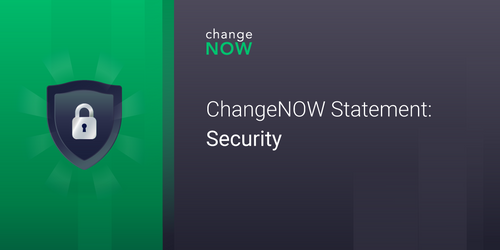Arbitrum vs. Optimism: The Battle of the Layer 2 Titans

Today, we’re diving into the world of Layer 2 (L2) blockchains, specifically the dynamic duo of Arbitrum and Optimism. These platforms have become the talk of the town in the Ethereum community, promising to boost scalability and reduce those pesky gas fees. So, grab your coffee, and let’s break it down!
What Are L2 Blockchains?
Before we get into the worlds of Arbitrum and Optimism, let’s quickly recap what L2 blockchains do. In simple terms, they operate on top of the Layer 1 to improve transaction speed and reduce costs. They do this by handling transactions off-chain while still leveraging the security of Ethereum. It’s like taking a scenic route to avoid traffic—smart, right?
Arbitrum: The Heavyweight Contender
Arbitrum uses a tech called rollups, which lets it bundle multiple transactions into one. This makes everything faster and helps keep gas fees low, which is a win for everyone. One of the best parts? It’s fully compatible with Ethereum smart contracts, so developers can easily move their projects over without a hassle.
Arbitrum also runs on an optimistic rollup model, meaning it assumes transactions are valid by default. This speeds things up but still allows for challenges if something seems off. With a growing community and a ton of dApps, DeFi platforms, and NFT projects popping up, Arbitrum is making a name for itself as a strong player in the layer 2 game!
Key Features of Arbitrum:
- Speedy Transactions: Expect faster transaction confirmations — like, really fast!
- Low Gas Fees: Who doesn’t love saving some ETH while transacting?
- Developer Friendly: A smooth transition for those building on Ethereum.
- Security: Leverages Ethereum’s security, keeping your assets safe.
Optimism: The Friendly Challenger
Now, let’s turn our attention to Optimism. Optimism can be seen as the easygoing yet effective counterpart in the layer 2 solutions landscape. Like Arbitrum, it utilizes rollups to efficiently batch multiple transactions, speeding up processing times and reducing gas fees.
A key strength of Optimism is its compatibility with Ethereum smart contracts, allowing developers to transition their projects with minimal adjustments. While both Optimism and Arbitrum leverage optimistic rollup technology, Optimism focuses on a straightforward user experience, whereas Arbitrum offers a more extensive set of features for developers.
By prioritizing user experience, Optimism aims to attract a broad audience, from seasoned developers to newcomers exploring decentralized applications. As the demand for scalable solutions grows, Optimism is positioned as a reliable player in the evolving Ethereum layer 2 landscape.
Key Features of Optimism:
- User-Friendly Experience: Aimed at making it easy for users to interact with DApps.
- Low Fees: Like Arbitrum, it offers reduced gas fees, making it budget-friendly.
- Fast Finality: Optimism delivers quick transaction confirmations.
- Ecosystem Growth: Strong focus on building a vibrant developer community.
Side-by-Side Showdown
Now that we’ve met our contenders, let’s see how they stack up against each other. Here’s a handy comparison table:
| Feature | Arbitrum | Optimism |
|---|---|---|
| Transaction Speed | Fast | Very Fast |
| Gas Fees | Very Low | Low |
| Developer Compatibility | Ethereum-compatible | Ethereum-compatible |
| Security | Leverages Ethereum’s security | Leverages Ethereum’s security |
| User Experience | Straightforward | User-friendly |
| Ecosystem | Rapidly growing | Actively developing |
| Decentralization | Highly decentralized | More centralized initially |
| Protocol Upgrades | Frequent updates | Regular improvements |
| Transaction Finality | Instant finality | Fast finality |
| DApp Compatibility | High | High |
| Community Support | Strong developer community | Strong developer community |
| Cross-Chain Interoperability | Emerging support | Focus on bridging solutions |
| Governance Model | Security Council and the Arbitrum DAO | Innovative model of Two Houses: Token House and the Citizens’ House |
Final Thoughts
With these added features, you can see a clearer picture of how Arbitrum and Optimism compare in various aspects. Whether you prioritize decentralization, transaction finality, or community support, both platforms offer unique benefits that can cater to different preferences. Happy exploring in the L2 space!



